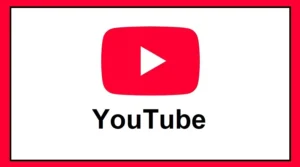YouTube has expanded its auto dubbing feature, making it available for educational and informative videos.
This feature, which was first introduced at VidCon last year, uses Aloud—an AI technology developed by Google’s Area 120 incubator.
The auto dubbing feature can automatically translate and transcribe YouTube videos, allowing them to be converted from English to other languages and vice versa.
Languages Supported and How It Works
YouTube shared the news about the feature’s expanded availability on its blog. Now, creators who are part of the YouTube Partner Program can use this feature for their knowledge
and information-based content. Videos created in English can be automatically dubbed into languages like French, German, Hindi, Indonesian, Italian, Japanese, Portuguese,
and Spanish. Similarly, videos in any of these languages can be dubbed into English.
Videos dubbed with this feature will display the label “Auto-Dubbed,” and viewers can choose to listen to the original audio using the track selector.
Simple to Use for Creators
There’s no special process for creators to use this feature. They simply need to upload their videos, and YouTube will automatically detect the language
and dub it into supported languages. Creators can manage the dubbed videos from the “Languages” section in YouTube Studio. If they don’t like the dub, they can delete or unpublish it.
Easy to Use for Creators
The process for using this feature is simple. Creators only need to upload their videos, and YouTube will automatically detect the language and dub it into supported languages.
The dubbed videos can be found in the “Languages” section of YouTube Studio.
Creators also have control over the dubbed version. If they don’t like the dub, they can unpublish or delete it.
























